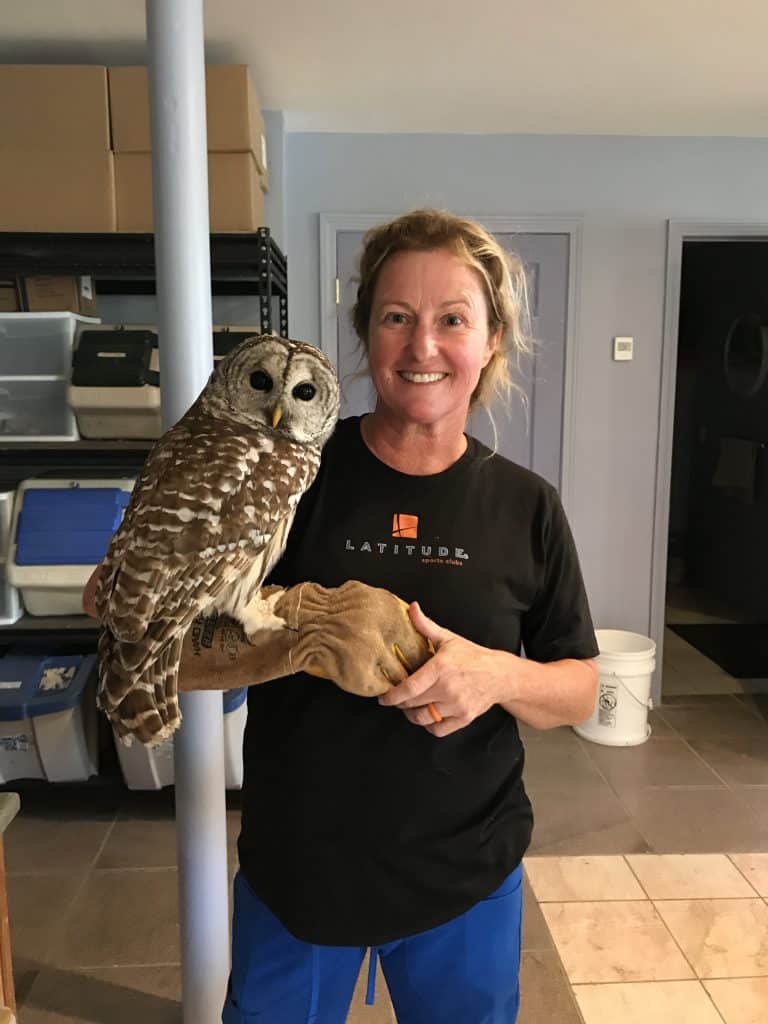
The Park City Hummingbird Hospital has spread its wings to become Park City Wildlife Rehab.
With the name change, the nonprofit animal rescue expands its mission to care for a wider range of species, said Executive Director Jody Giddings.
“Our clinic will now offer rehabilitation services for native local wildlife species, including small mammals and all migratory birds,” she said.
The clinic is located at 1790 Sun Peak Drive, Suite A 102, and the decision to rebrand and expand stems from the increase of calls Giddings received on her Wildlife Hotline.
We realized there was a need in Park City for a full wildlife rehabilitation clinic.”
Jody Giddings, Park City Wildlife Rehab executive director
“We were getting calls about injured hawks, mammals and other birds that weren’t hummingbirds that were injured by window strikes and things like that,” she said. “We realized there was a need in Park City for a full wildlife rehabilitation clinic. So, we changed our permit through the state, and are now accepting those small mammals and migratory birds.”
The permits were finalized at the end of January, and Giddings and her staff have already seen an increase of animals, especially birds.
“We have secured some caging in Kamas, and we are looking to raise some funds to expand the caging,” she said. “We want to convert those into what we need to handle recuperating wildlife prior to their release.”
In addition to the caging, Giddings added more dedicated professionals who are experts in wildlife rehabilitation to her team.
“We’re pretty much an all-volunteer organization at this point, but we have a new volunteer who used to run a wildlife rehabilitation center in Texas,” she said. “We also brought on Ray Bryant, who is a field expert in wildbirds. He used to work with Tri State Bird Rescue in Delaware, and they are the ones who go to the major oil spills throughout the world to rescue birds. They also have an avian rehab. So he is able to go look at nests and situations to see what’s going on.”
Bryant is also in charge of Park City Wildlife Rehab’s renesting program and animal transport, according to Giddings.
“He will train a team and do more outreach and fieldwork,” she said. “That will allow me more time to work in the clinic.”
In addition, Park City Wildlife Rehab includes a number of people who sign up for volunteer shifts through its website, according to Giddings.
“They come on to help care for the animals, expand caging and do some public outreach,” she said.
Outreach includes building educational programs, host workshops and other events that connect the public to the natural world, Giddings said.
“We are also strengthening our partnerships and collaborations with local wildlife authorities, conservation organizations, and veterinarians to ensure the highest standard of care and support for our wild neighbors,” she said.

One of those partnerships is with Dr. Laurel Harris at Wasatch Exotic Pet Care in Salt Lake City, Giddings said.
“Everything starts at our clinic, which is close to Canyons,” she said. “It’s set up as a full veterinary clinic where we do triage and treatment. But if any of the animals need surgery, they are taken care of by Dr. Harris.”
People who find an injured animal or are concerned that one they come across may be injured can call the wildlife hotline at 801-228-0831 or they can also drop off injured and orphaned wildlife at the Sun Peak location, Giddings said.
“The best thing to do is call, because I have the phone with me 24 hours a day,” she said. “During the call we’ll talk about animal behavior so we can determine if the animal needs to be brought in for care.”
Giddings welcomes all types of concerned calls when it comes to animals.
“If people see something that they may think is odd, they can call me to get to the bottom of things,” she said. “Then I will usually ask people to send me a text with a photo of the injured animal or animals they are concerned about.”
Once Giddings receives the text and photo, she’ll talk with the person and decide whether Giddings needs to retrieve the animal or if the person can bring it safely to the clinic.

To sustain these services, Park City Wildlife Rehab relies on donations, Giddings said.
“We are a 501(c)(3) and don’t receive state or federal funding,” she said. “We do apply for grants, but we mostly depend on the generosity of our donors.”
Donations may include caging and space to place the cages, Giddings said.
“We are grateful for property owners who will allow us to place small enclosures on their land for our animals’ releases,” she said. “We always appreciate monetary donations that will support our indoor clinic and outdoor facilities that we’ll need this summer and fall.”
Interested donors can visit parkcitywildliferehab.org and click the donation button, Giddings said.
“We are raising funds to equip our facility with the latest tools and resources to provide the best possible care for the animals,” she said. “And, even though hummingbirds still have that No. 1 spot in our hearts, I’m looking forward to working with small mammals, hawks and raptors and doing more community outreach.”
